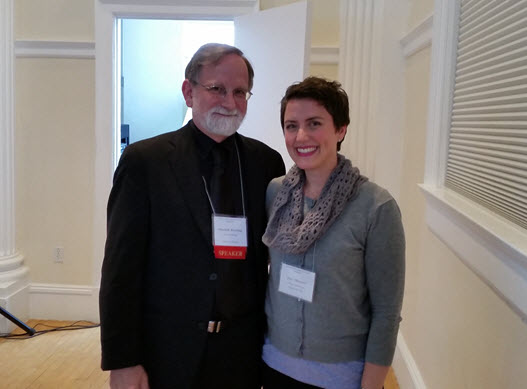Listen to this article
April was a month full of conferences, and an important part of any conference (besides the free tote bag, of course) is sharing what you learned when you get back.
I recently attended the Colorado ILL Conference in at the Stanley Hotel in Estes Park and had the opportunity to learn about trends in library technology from keynote speaker Marshall Breeding, author of the annual Library Systems Report.

Library technology matters more than ever for all kinds of librarians, not just those in technical services. We interact daily (or hourly) with technology, so it’s important to understand the trends so that we can maximize what we have and plan more effectively for the future.
Consolidation and Customization
After many years of mergers and acquisitions, a small handful of companies now control the majority of the library technology market. The trend towards consolidation means that top-tier companies like ProQuest and EBSCO are now involved in everything from resource management systems, search interfaces, and links resolvers, to digital content like ebooks and journals.
Consolidation can be a good thing: users can easily and smoothly move around in a suite of products owned by one company. Competition among these large companies is also improving content and technology.
The downside to consolidation, however, is that large companies can become monoliths, removing choice from libraries that would like to create their own environment from different products. Luckily, the API landscape is becoming more robust at the same time that open source solutions are becoming mainstream, making it possible to create custom solutions for managing increasingly complex collections. The caveat to creating a custom system is that the library must have the expertise available to design and support it.
Academic and Public: Different Needs
In academic libraries, digital is king. The majority of budgets are spent on digital subscriptions and content, as well as the systems to manage that content. These systems get more complex when content needs to be shared across a consortium. As more of the budget is devoted to digital, less is devoted to print, and as a result academic libraries are beginning to share print collections.
Meanwhile, print is still going strong at the public library, though electronic resources are steadily gaining ground. One of the biggest challenges in managing digital content within the traditional ILS is creating a seamless discovery environment for patrons, one that doesn’t require multiple steps to find and download digital content.
Linked Data, or, Libraries on the Web
Library data is not in a format that the web understands, and as a result our resources don’t appear in web search results. But movements like Linked Data, BIBFRAME, and the semantic web aim to change that. Libraries and library technology companies are beginning to invest in tools to enable web discovery. Read more about Linked Data.
ILL Consortial Sharing
The trend in interlibrary loan technology is to make it easier to share within consortia. This can mean linking different systems together, but more often it means that consortium members are using the same system for easier management and cooperation. Examples of consortial sharing in Colorado include AspenCat and Marmot.
Tying it All Together
Overall, library resource discovery is becoming more seamless for patrons, whether they are searching the library catalog for ebooks or looking up a journal article on the web. The various technology components need to work together, and that can take many forms, including comprehensive indexes, APIs, Linked Data, and semantic search.
Be sure to check out Marshall Breeding’s latest Library Systems Report in American Libraries Magazine for more details and to discover even more trends in library technology.
Reflecting on and sharing out what you learn at conferences helps our entire profession grow. What have you learned recently at a conference? Share it by filling out this super short form. If you’re on Twitter, tweet @hitchlib or use the hashtag #spotlightonsharing.
- Friday Grab Bag, November 16, 2018 - November 15, 2018
- Friday Grab Bag, November 9, 2018 - November 9, 2018
- Friday Grab Bag, November 2, 2018 - November 2, 2018
